DEVIL
<42.7, 42.9>
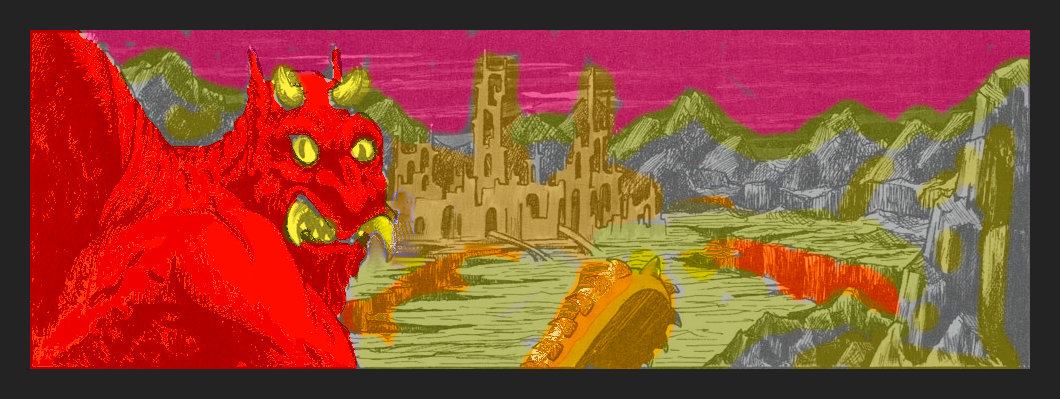
DEVIL
<42.7, 42.9>

|
|
||||
|
|
|
|
|
|
|
|
|
|
|
|
|
|
|
|
|
|
|
|
|
|
|
|
|
|
|
|
|
|
|
|
|
|
|
|
|
|
|
|
|
|
|
|
|
|
|
|
|
|
|
|
|
|
|
|
|
|
|
|
The inhabitants and rulers of the planes of Hell
are principally devils, the
most powerful of LE
creatures. They somewhat resemble the
demons of chaos in their
characteristics and abilities, and general
attributes will be dealt with below, while specifics
pertaining to each
individual type or arch-devil are given in the
category or Name detail
listings.
Devils fallow a definite order, a chain of {command},
which they dare not
break for {fear} of the arch-devils.
Still, there is great rivalry, even open
antagonism, between the devils of the various
planes and between the <x:semantic>
various arch-devils. While the lesser
devils squabble, the dukes of Hell
vie
to usurp the throne of
Asmodeus.
But the Archfiend has always succeeded
in playing one off against the other, and still
rules from his lowest plane.
All devils are able to move about the planes of
Hell
(although they dare
not do so without authorization, save far the
dukes). They can move to the
planes of Gehenna,
Hades,
and Acheron at will. Devils can also
MOVE
through the astral
plane, although they seldom do so. No devil is
able to
enter the other planes
unless the proper ritual is performed, a gate
is
opened, or the proper name
of a devil is spoken (and heard).
It is possible to destroy the material form of
a greater devil or duke of Hell,
but such creatures can not actually be slain
unless encountered and fought
in Hell
or those lower planes adjacent to it. Devils can never be subdued.
The lesser ones
will always fight until destroyed; the greater ones
will
negotiate if seriously threatened. Devils will
serve if properly commanded,
but it is risky .biz, far an improper command
will break the law which
binds them to service. (It also typically requires
a contract for the soul of
the creature commanding the internal power to
obey.) It is possible for
other than LE
persons to invoke or otherwise treat with devils (but
the long spoon, aft spoken of, had better be
used when supping with such
monsters). Magic circles
will keep devils off for a time if they
are properly
scribed (and ensymboled in the case of a greater
and arch-devils). Devils
are repelled by holy (good)
artifacts or relics.
Multiattack: All devils can direct their
attacks against two or more opponents if the
means are at hand.
If a greater devil
has its material form destroyed it is
forced to lemure status
for nine decades of torment before it resumes its
former station. If the {material} form of a duke
is destroyed, that arch-devil
is bound to its own particular plane of Hell
for a decade (unless again
properly called forth prior to the end of the
10 years) and a great {loss of face}
is suffered (and fury in Hellis
unmatched then).
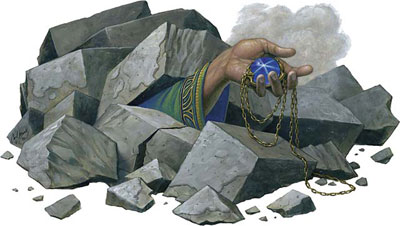
Each type of lesser devil has a special combination
of
inscriptions which will bind them to the wielder
for the space of nine days,
or at least prevent the devils of that type from
harming the possessor.
Greater devils can likewise be commanded for
nine hours or kept at bay. <link to list of greater devils>
Arch-devils'
talismans will cause them to perform a single service, or
prevent the bearer from being harmed by a particular
duke of Hell, when <link to list of dukes>
properly used. The employment of any devil's
talisman requires great care
and caution. Human
sacrifice is required of evil creatures using a talisman <sacrifice>.
Merely looking at these talismans is dangerous.
If not properly protected
by spells or a magick
circle, study of a charm gives a 10% chance of , <spells=x>
summoning the kind or specific devil to whom
the talisman belongs.
Speaking the name on the talisman will always
call forth the kind or
specific devil.
Arch-devils will be aware of improperly protected
talismans,
and they will send something to slay persons
in possession of them if the talismans pertain to them or their planes.
Only erinyes, barbed
devils, and bane devils can be hit by
non-magical weapons. <revise>
The greater devils (malebranche, ice
devils, and pit fiends) can <incl MM2>
be struck by magical weapons, or weapons
of silver, but ordinary arms do
them no harm.
All devils have or are able to perform the following:
| Charm Person |
| Suggestion |
| Illusion |
| lnfravision |
| Teleportation (no error) |
| Know Alignment |
| Cause Fear (effect varies) |
| Animate Dead |
Devils are able to summon their fellows, summoning
being similar to a
monster
summoning spell.
Because they have a special form of telepathy,
devils are able to
understand and converse with any intelligent
creature.
Devils are affected by the listed attack forms as noted below:
Attack Maximum Damage Will be:
| acid | full |
| cold | half |
| electricity (lightning) | full |
| fire (dragon, magical) | none |
| gas (poisonous, etc.) | half |
| iron weapon | none* |
| magic missile | full |
| poison | full |
| silver weapon | full |
*unless affected by normal weapons, in which case
damage will be
according to the weapon type.
Aerial Combat:
All devils' power of illusion makes them difficult and dangerous aerial
opponents.
The devil is the sacred animal of Druaga.
<9 hells, have 9 different shades, for those
that are specific to a layer?>
<in theory, the pages shouldn't be as dark
as the demon pages>
<in theory, try out alternate images : maybe,
have 'NPC paintings', extra html to the actual images>
Question:
The MM says that demons and devils are affected
by iron
&& silver weapons but then it says
that magic weapons
are needed to hit
certain demons and devils.
Do iron
&& silver weapons damage these creatures?
Answer: The
forms of attacks which affect all demons and devils are
listed in the general
descriptions for each type of creature.
Everything in the
list applies to every creature of that type; in
other words, a demon
which is described as only being vulnera-
ble to magic weapons
is also vulnerable to iron weapons, even
the non-magical
type. A demon will take no damage from a silver
weapon, unless the
demon is a type which is vulnerable to
non-magical weapons,
in which case a silver weapon will have
the same damage
potential as a similar weapon made of any
other substance.
The situation is reversed for devils; all devils are vulnerable to
silver
weapons, even those who are otherwise only able to be hit
by magic weapons,
and no devil can be damaged by an iron
weapon unless that
devil is vulnerable to non-magical weapons.
Question: Are demons and devils immune to Sleep && Charm spells, just like the undead are?
Answer: Not
exactly, although the end result is about the same. Dem-
ons and devils are
not by nature immune to Sleep and Charm
spells — except
for the manes and lemures,
which are specifical-
ly described as
being immune to both those types of magic. The
rest of the ranks
don’t need to be “made” immune to Sleep spells
— they already are,
because the spell only affects creatures of
up to 4+4 hit dice,
and none of the demons or devils (except for
manes and lemures)
has a hit-dice figure lower than 5+5.
Demons and devils are technically vulnerable to the effects of
a Charm
Monster spell, but the percentages aren’t exactly in
favor of the character
who tries to use such a spell — and keep it
working after it
is cast. Considering the MR of
demons and devils,
plus the fact that they get a saving throw
against the spell
even if their MR fails, plus the fact
that they can successfully
“break” the charm after it is CAST, the
odds are definitely
against the spell caster. For example, con-
sider an 11th-level
magic-user trying to snare a “lowly” Type I
demon with Charm
Monster: The demon has a 50% chance
(MR) of being unaffected,
a 35% chance to make a
save vs. the spell
even if its MR fails, and a
45% chance per week
thereafter of snapping out of it. That all
adds up to less
than an 18% chance that the spell will succeed
and be effective
for longer than one week. The chance of suc-
cess is a lot lower
for the most powerful demons and devils, and
it would not be
improper for a DM to simply rule that the “big
names” (Demogorgon,
Juiblex, Orcus, Yeenoghu, Asmodeus,
Baalzebul, Dispater,
Geryon) are effectively immune to the
spell. The idea
of being able to bring one of the demon princes
or arch-devils under
control by means of a mere 4th-level spell is
hard to accept.
<add note at arch-devil>

3RD21ST wrote:
Hello Gary,
Good to see that you are up and about promoting the hobby. Best wishes for you as far as your health is concerned.
Also I have a question for you concerning the true names of the demon princes and arch devils. There are a handful, give or take a few, of spells that will cause such beings considerable pain and/or discomfort if used in conjunction with their true name. My question is, did you ever jot down the true names of demon princes and arch devils? I am just dying to know what some of their real names are. Having the eye for detail that you do, my guess is that you did do this for many if not all of them. My next guess would be that you could count on one hand the ones who appear in the various monster encyclopedias under their true name. I refuse to believe that you would ever make something that easy for players. However, as a DM, I would very much like to know what those names are. Is there a way for me to find out what those true names are, other than convince you that I should not be kept on a need to know basis for said information? :D
Best Wishes,
Rob

Howdy Rob!
To be succinct, i created out of whole cloth the true
names of very few demons.
Only if a powerful PC was bent on encountering such
an entity did I spend time to develop such details.
If you are planning to have a list of true names, then
I suggest you make them up based on the commonly known name(s) of the demon
in question, and keep that list well hidden from prying eyes.
Imagine you being in the same boat as Rumplestiltskin
:roll:
Cheers,
Gary

When I am less busy I'll
see about the humor on the website you note.
As for playing an evil-race
character as non-evil, sure! Why not, as there is variation of such outlook
in most fantasy races.
The general alignment category
speaks to the racial propensity and the bent of the majority of it, but
certainly a lot of individuals can be different.
That does not apply to it
inherantly evil entities such as vampires, let alone demons and devils.
There the modification might
be in orderliness (Law-Chaos) and the degree of Evil, the dilligence
with which the wicked and malign is pursued.
Just as there are truly
evil
people with no redeeming qualities whatsoever, so too all such creatures
of Evil, for they epitomize that trait.
Cheers,
Gary

Setting aside the debate
of nature versus nurture, there are always abberations, and with intelligent
creatures change is possible. Consider how many monks and priests were
martyred in the conversion of the Friesains to Christianity, but eventually
they prevailed. Contrast that with non-intelligent species, a wolverine
for example. The likelihood of one not being an aggressive hunter-killer
is infinitismal.
"Outsiders" is not a term that properly connotes non-human origination. It implies that the world is the inner, central place. Demons and devils are creatures of pure evil, just as there those of pure good. Neither sort of entity can ever be anything else in my view. It is akin to the wolverine example given above.
"Minorities" aren't that
in their own country, and RPGs, D&D in particular, are played in thre
majority of nations of the world. It is social-economic class that is the
determanant, not ethnicity. Most gamers are highly literate and of the
middle class. About a quarter of them are connected to information technology.
In all, males outnumber females by about 9 to 1--so there's the minority
that publishers would most like to attract to RPGs ![]()
Cheers,
Gary
Cheers,
Gary
Quote:
Originally Posted by CRGreathouse
I have some questions about
monster origins--if you don't mind, Gary. I'd really like to know where
the ideas came from originally: legends, thought processes, inspirations,
etc.
What can you (will you) tell us about the Umber Hulk? They're my favorite D&D monsters, really. What inspired you? I like the fact that they look like ordinary monsters, but they're actually intelligent and have a particular 'culture' of their own.
What about the diobolic heirarchy
(Type I, II, ... or their named equivilents)? Were those designed wholecloth,
or did you find inspiration in particular sources? Dante seems a natural
influence...?
Hail CRGreathouse,

Allow me to preface my answers
with a brief statement regarding my reading.
From the time I was about
five I was read fairy tales and read them.
Soon thereafter I added
fables and legends, and by age 12 I was an avid fan of fantasy and SF stories,
reading a book a day.
Along with that I read a
lot of mythology and history (fact and fiction), some Westerns, Murder
and Oriental mystery stories, horror, occult, and action yarns.
Later on, in searching for
new creatures to add to the D&D monster roster I devoted a lot of research
time to folklore.
The umber hulk a creation
made from the whole cloth of my imagination.
they were meant to be a
considerable challenge to potent PCs, so they were given the abilities
you appreciate.
The demon types I, II, III,
etc. were similarly devised using mainly my imagination.
The devils were a mix of
imagination and Dante's writing.
Cheers,
Gary
Quote:
Originally Posted by Gray
Mouser
2) Can all demons and devil
possess someone or only certain types (presumably the more powerful ones)?

It is up to the DM, but
I'd say that those of 5th rank or above can attempt possession as if casting
a magic jar spell.
Quote:
Originally Posted by Soel
Hello, Gary!
I don't know if you've covered this question before (very likely, I'd guess,) but I would like to ask you about your initial inspiration for coming up with differing distinctions for the fiendish creatures. Mainly, what caused you (taking an assumption it was your idea to do this,) to separate the classical demon into demons and devils and others?
I can understand having a hell, but I guess another part of the question is, why were other lower planes of existence created?
Thanx in advance!

Howdy Soel,
The separation of demons
and devils followed rather naturally from the use of the alignments.
Demons in mythology are
typically depicted as being brutish and chaotic, while devils are more
orderly and cunning, so there you have the distinction.
The lower planes were a drawn from mythology as well, those being the realms of evil, the evil dead, and whatever was malign.
Cheers,
Gary

Yuletide Felicitations Gray
Mouser![]()
You have the differences between demons and devils I envisaged well in hand.
Demons are also unpredictable, not prone to follow instructions save through fear and force. A major one might well not cause death and desituction, but rather do something wealsome on a whim...or be exceptionally cruel.
Devils are far more predictable and orderly in their evil activities. Of course they too are subject to force and fear, but they need not be supervised continually to be assured of their acting as instructed, because their own nature is regimentation and obedience to those more powerful and malicious.
Christmas best wishes,
Gary
![]()
Quote:
Originally Posted by BOZ
infighting among the devils
is probably rare insofaras combat-type encounters; their infighting probably
involves a lot more espionage, subterfuge, sabotage, and diplomacy.

Christmas Day Felicatations![]()
Just so, Boz!
Plotting and intregue, machinations to discredit one above so as to move up in the hierarchy, but don't get caught!
yuletide best wishes,
Gary

Quote:
Originally Posted by Mighty
Veil
Wow. Reading page 3's Gary
responses from his response of my Canadian Maple Leaf post to Gord. I haven't
been this surprise about AD&D's roots since Gary said he wasn't a LotR
fan. And not so much D&D is based on LotR.
I didn't realize D&D didn't base itself on Christian beliefs. Hindu, huh? Never would of guessed that. I still don't understand this Theosophy one. But Solars are the sun, and planetars are the planet. This new view of them makes them seem more like cosmic elementals than angels (reminds me of the show Andromeda). Very spiritual.
You know Gary. Had you used "Paradise Lost" as inspiration. I bet a neat D&D cosmology , different then the current one, there could have been. I just HATE what 2e's Planescape did to it. I was thinking of buying the new Demonweb Pit adventure till I learned it used 2e's cosmology.

As a Christian I stayed
well away from basing any of the D&D game on scripture.
The Deva, Solarm and Planatar are benign and rather angelic in their purposes.
No Milton, but I did use a bit of Dante's Inferno is developing the denizens of the Nine Hells.
Cheerio,
Gary
Abishai (Lesser Devil), Amon (Duke of Hell), Bael (Duke of Hell), Bearded Devil (Lesser Devil), Belial (Arch-devil), Glasya (Princess of Hell), Hutijin (Duke of Hell), Mammon (Arch-devil), Mephistopheles (Arch-devil), Moloch (Arch-devil), Nupperibo (Least Devil), Titivilus (Duke of Hell), Spined Devil (Least Devil).
<added note after frequency
in the descriptions>
<update other descriptions
beyond the MM2 devils>
<for the Arch-Devils, all 9, make it clear that they are Lesser Gods, and integrate the standard powers of a Lesser God onto all 9 of their pages -- see Manual of the Planes, Appendix>
The inhabitants and rulers
of the planes of Hell are principally devils,
the
most powerful of lawful
evil creatures. They somewhat resemble the
demons of chaos in their
characteristics and abilities, and general
attributes will be dealt
with below, while specifics pertaining to each
individual type or arch-devil
are given in the category or individual
listings. Further information
is available in MONSTER MANUAL I, under
“Devil.”
Devils follow a definite
order or chain of command, which they dare not
break for fear of the arch-devils.
Still, there is a great rivalry and open
antagonism among the devils
of the various planes and among the
various arch-devils. While
the lesser devils squabble, the dukes of Hell
vie to usurp the throne
of Asmodeus. But the archfiend has always
succeeded in playing one
against the other and still rules from his
lowest plane.
All devils are able to move
about the planes of Hell (although they dare
not do so without authorization,
save for the dukes). They can move to
the planes of Gehenna, Hades,
and Acheron at will.Theycanalso move
through the Astral Plane,although
theyseldomdoso. Nodevil isableto
enter the other planes unless
the proper ritual is performed, a gate is
opened, or the proper name
of a devil is spoken (and heard).
It is possible to destroy
the material form of a greater devil or duke of
Hell, but such creatures
cannot actually be slain unless encountered
and fought in Hell or those
lower planes adjacent to it. Devils can never
be subdued. The lesser ones
will always fight until destroyed; the
greater ones will negotiate
if seriously threatened. Devils will serve if
properlycommanded, but it
is risky business, for an improper command
will breakthe lawwhich binds
them toservice.(It also typically requires
a contract forthe soul of
the creaturecommanding the infernal powerto
obey.) It is possible for
other than lawful evil persons to invoke or
otherwise treat with devils.
Magic circles will keep devils off for a time if
they are properly scribed
(and ensymboled in the case of greater and
arch-devils). Devils are
repelled by holy (Good) artifacts or relics.
All devils can direct their
attacks against 2 or more opponents if means
are at hand. If a greater
devil has its material form destroyed it is forced
to lemure status for 9 decades
of torment before it resumes its former
station. If the material
form of a duke isdestroyed, it is bound to its own
particular planeof Hell
for a decade (unless again properly called prior to
the end of the 10 years)
and a great loss of face is suffered.
Because they have a special
form of telepathy, devils are able to understand
and converse with any intelligent
creature. Devils are affected by
these attack forms: acid,
full; cold, half; electricity (lightning), full; fire
(dragon, magical), none;
gas (poisonous, etc.), half; iron weapon, none
unless affected by normal
weapons in which case damage will be
according to the weapon
type; magic missile, full; poison, full.
THE HIERARCHY OF THE PLANES OF HELL
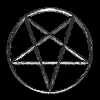
MONSTER MANUAL I details
the names and ranks of many of the devils,
but it is by no means complete.The
following isa list of the dukes of Hell
as well assome of their
foremost henchmen. Statistics and descriptions
are not given for most of
their devils. In general, the dukes are about
equal to a weaker archdevil,although
some are but little stronger than a
pit fiend, or are, in fact,
actual pit fiends.
<note: make links to each of these, under each of the Arch-devils, as appro.>
company
= 2-3 platoons
platoon
= a unit of 30 to 40 soldiers, typically commanded by a lieutenant
<note:
I would recommend 3 platoons to the company, and 30 devils to the platoon>
<thus, a company = 90 devils>
<or, game school, a company simply = 100 devils>
<reference = Demonology>
| Name | In the Service Of | Command or Position | Image | Seal |
| Abigor | Baalzebul | 60 companies of malebranche | 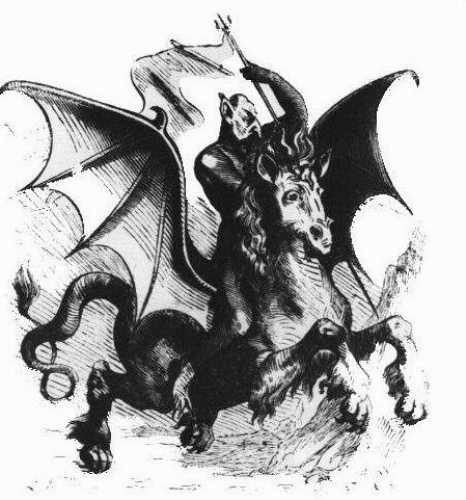 |
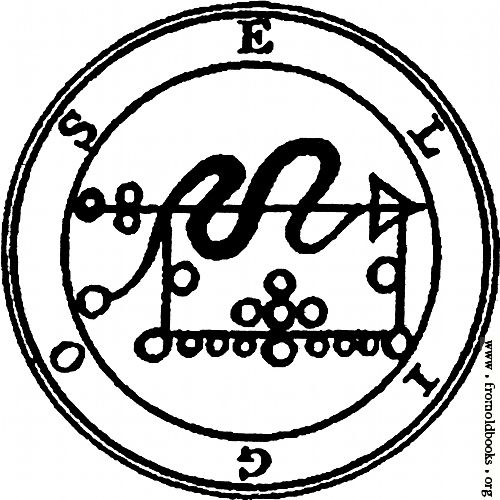 |
| Adonides | Mephistopheles | Steward | - | - |
| Adramelech | Asmodeus | Chancellor | - | - |
| Agares | Geryon | 31 companies of bone devils | 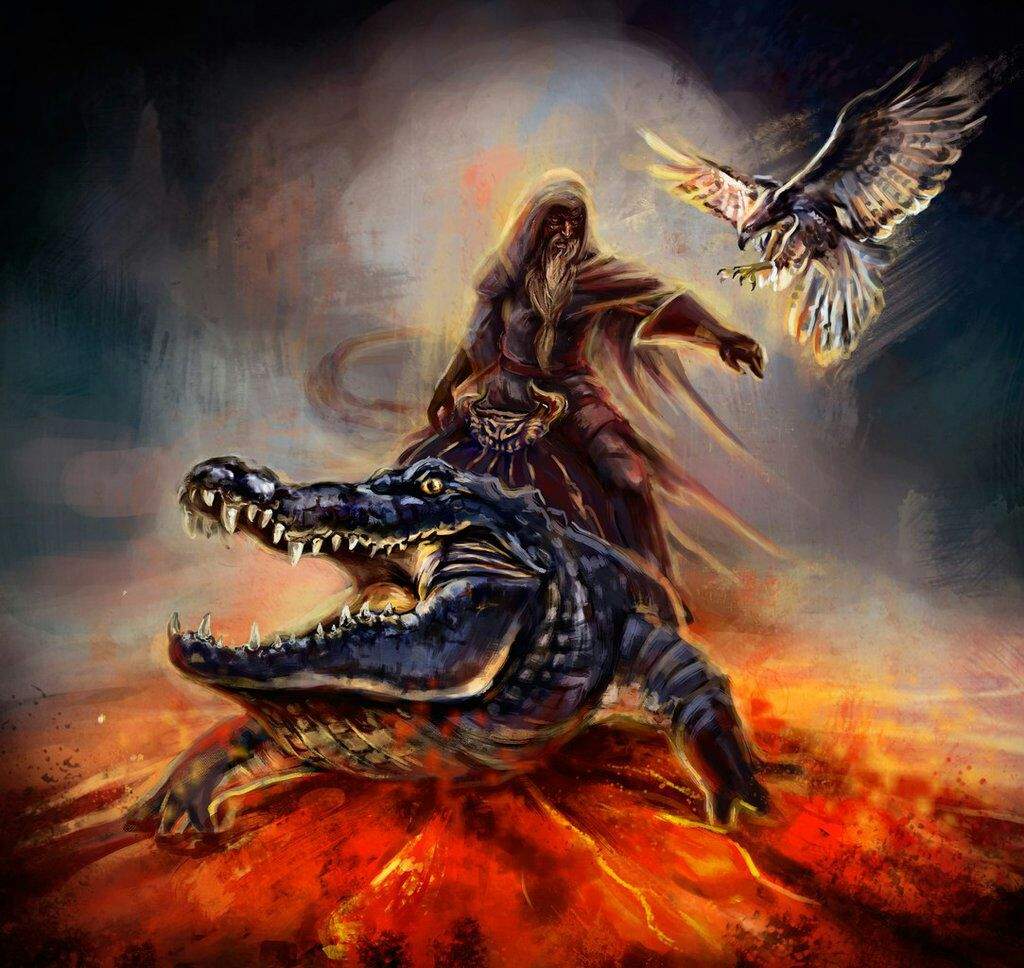 |
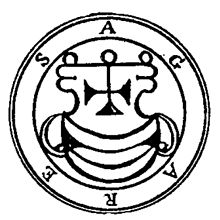 |
| Alastor* | Asmodeus | Executioner | - | - |
| Alocer | Dispater | 36 companies of erinyes | 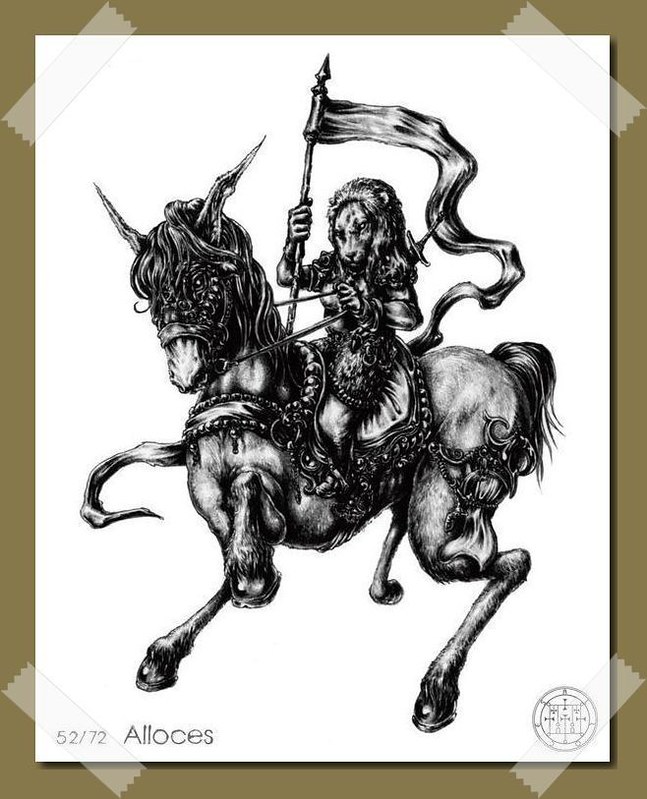 |
- |
| Amduscias | Tiamat | 29 companies of abishai | 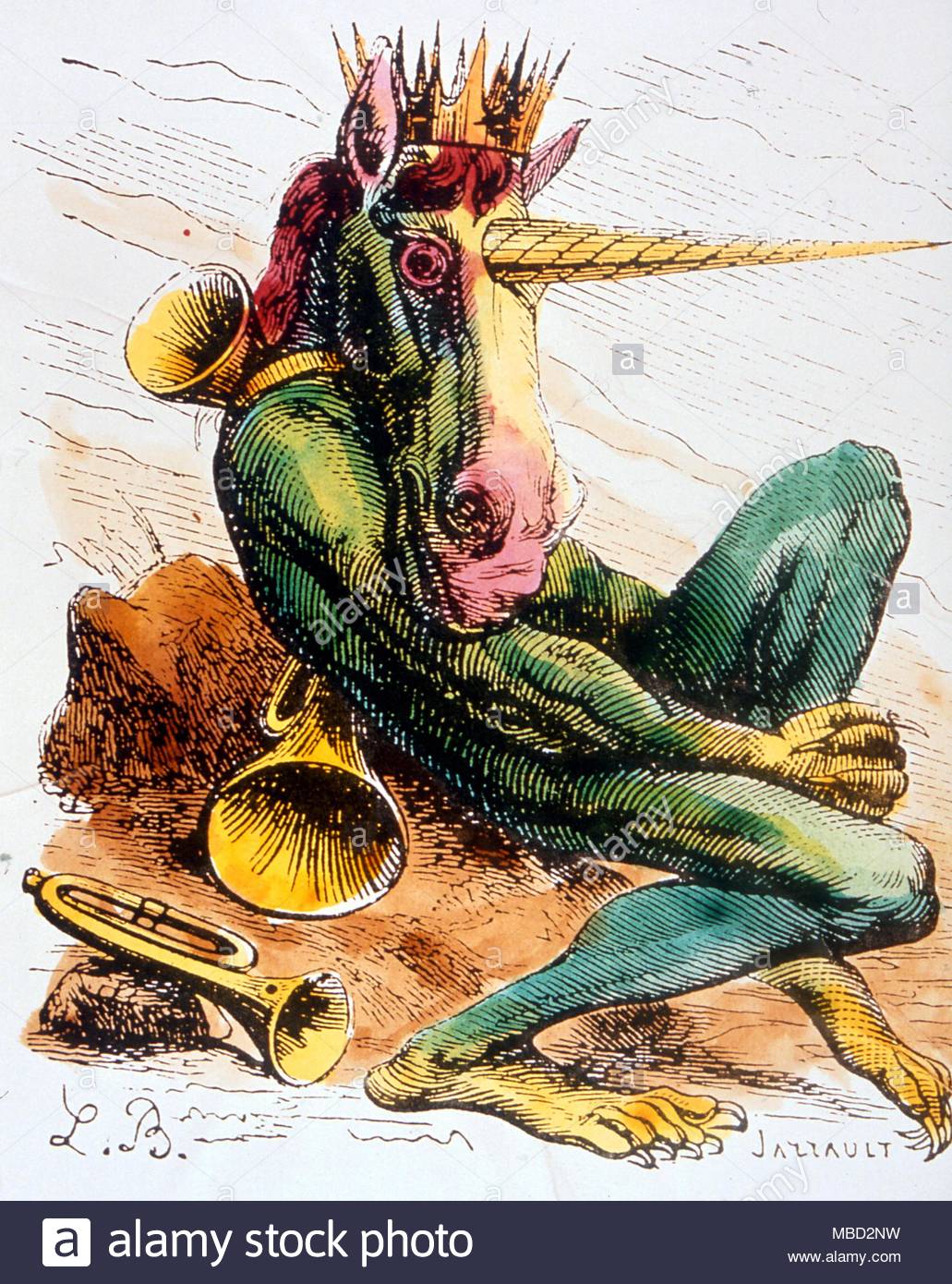 |
- |
| Amon | Geryon | 40 companies of bone devils | 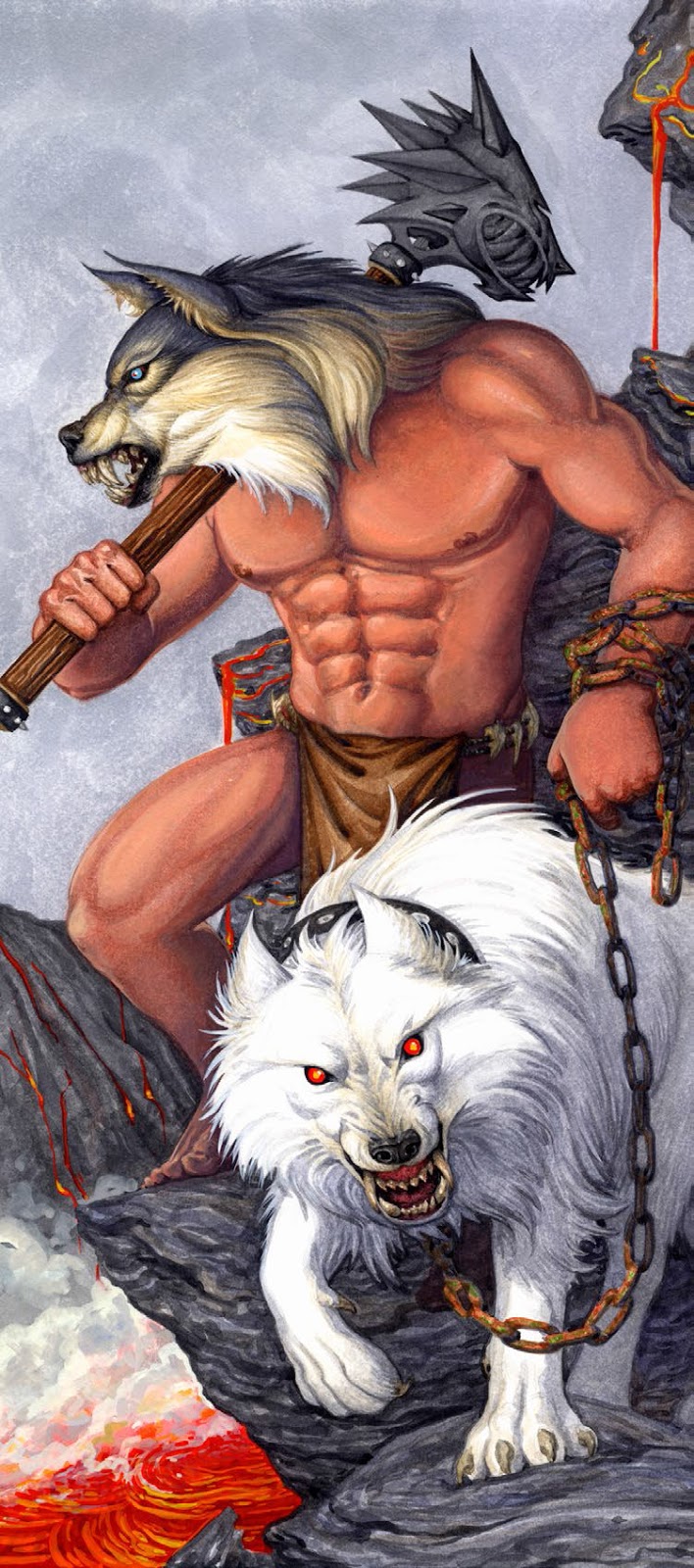 |
- |
| Arioch | Dispater | Avenger | 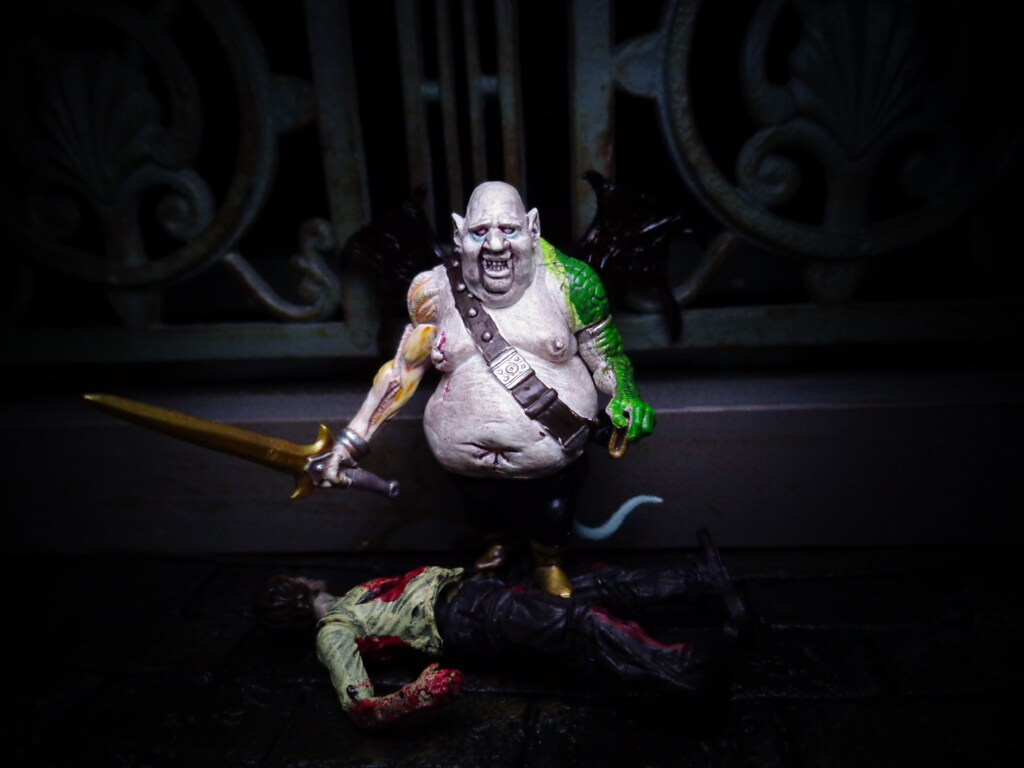 |
- |
| Baalberith* | Asmodeus | Major domo | - | - |
| Baalphegor (F) | Mephistopheles | Consort | 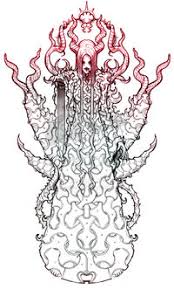 |
- |
| Baalzephon* | Dispater | Prime minister | - | - |
| Bael | Mammon | 66 companies of barbed devils | - | - |
| Balan | Belial | 40 companies of bearded devils | 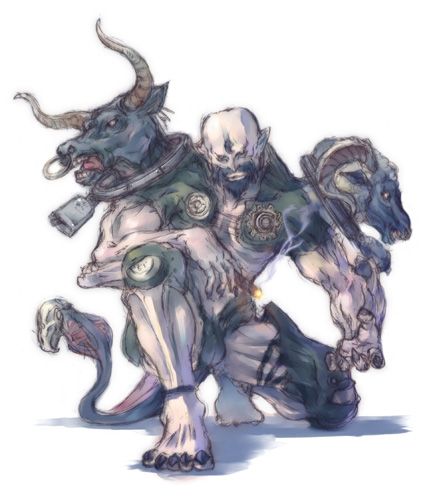 |
- |
| Barbas | Mephistopheles | Chamberlain | 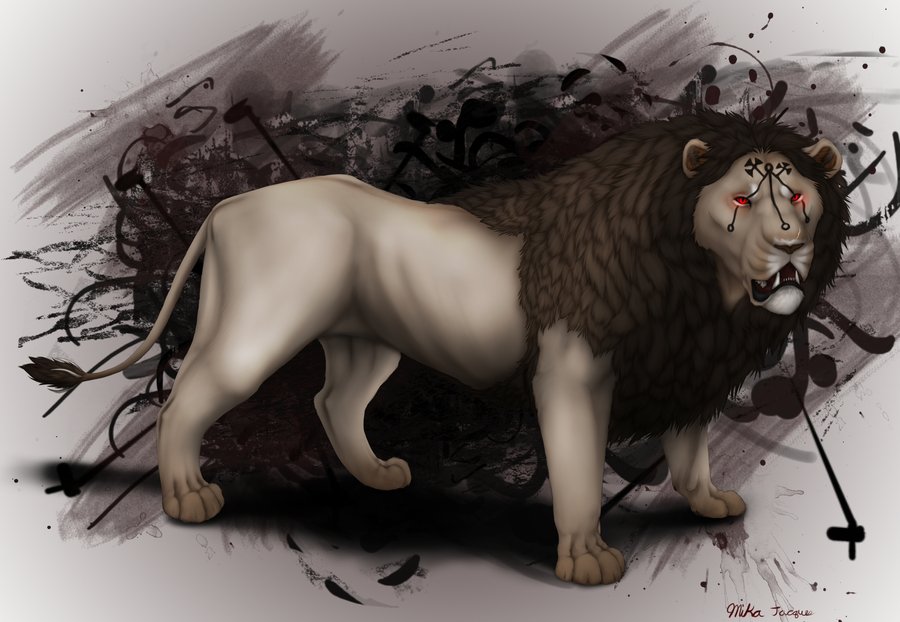 |
- |
| Barbatos | Baalzebul | Marshal | 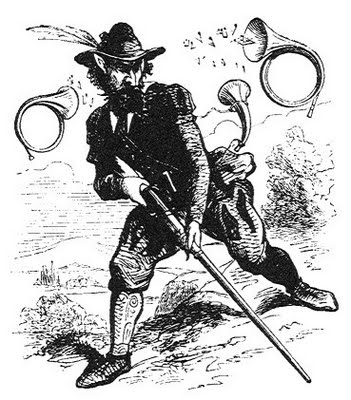 |
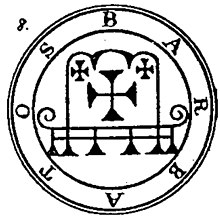 |
| Bathym | Belial | 30 companies of barbed devils | - | - |
| Bel* | Dispater | 3 companies of malebranche | - | - |
| Bele | Mephistopheles | Chamberlain | - | - |
| Bensozia (F) | Asmodeus, Baalzebul | Consort | 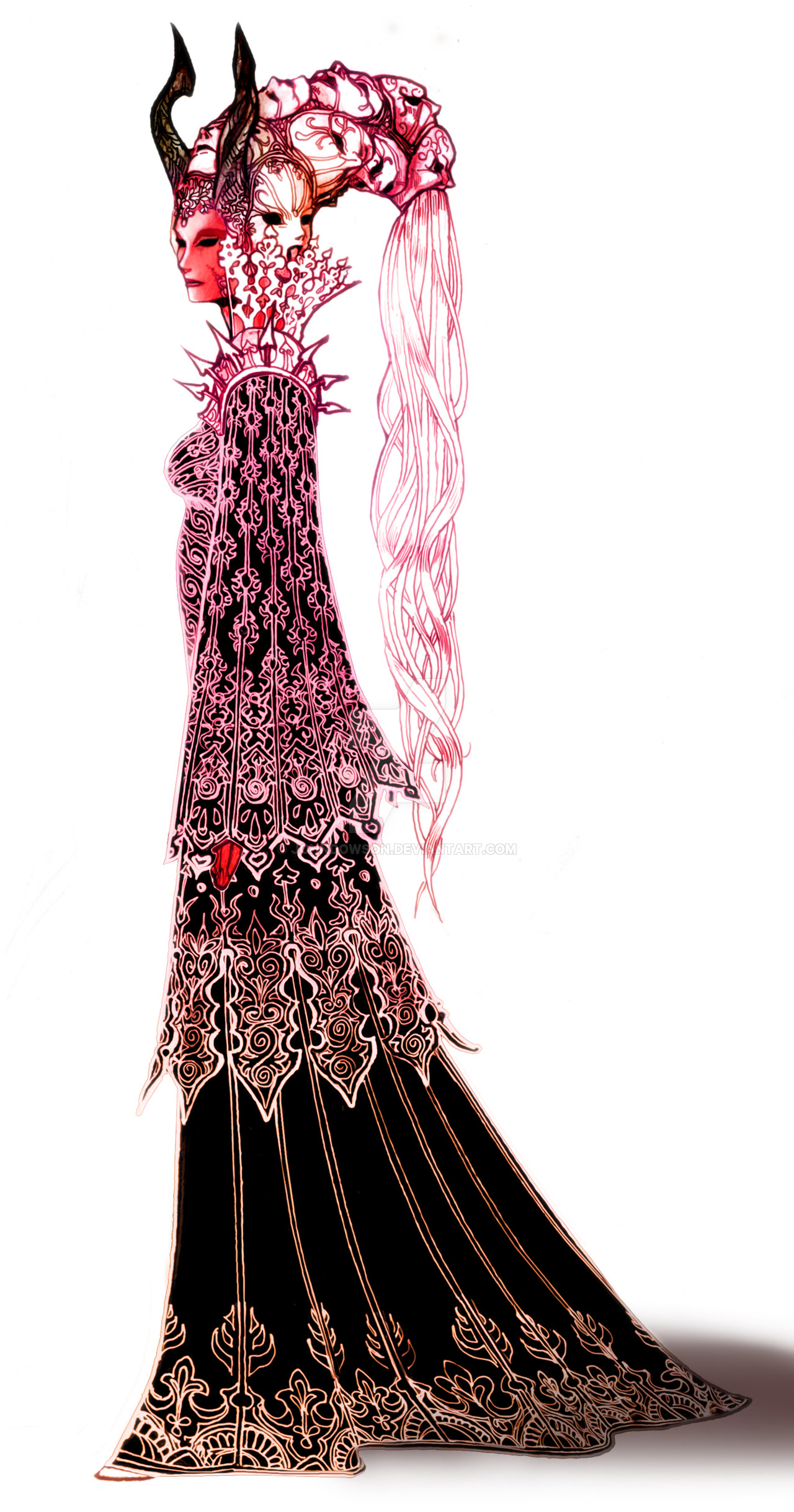 |
- |
| Bethage* | Moloch | 9 companies of malebranche | - | - |
| Biffant | Dispater | Provost | - | - |
| Bifrons | Mephistopheles | 26 companies of ice devils | 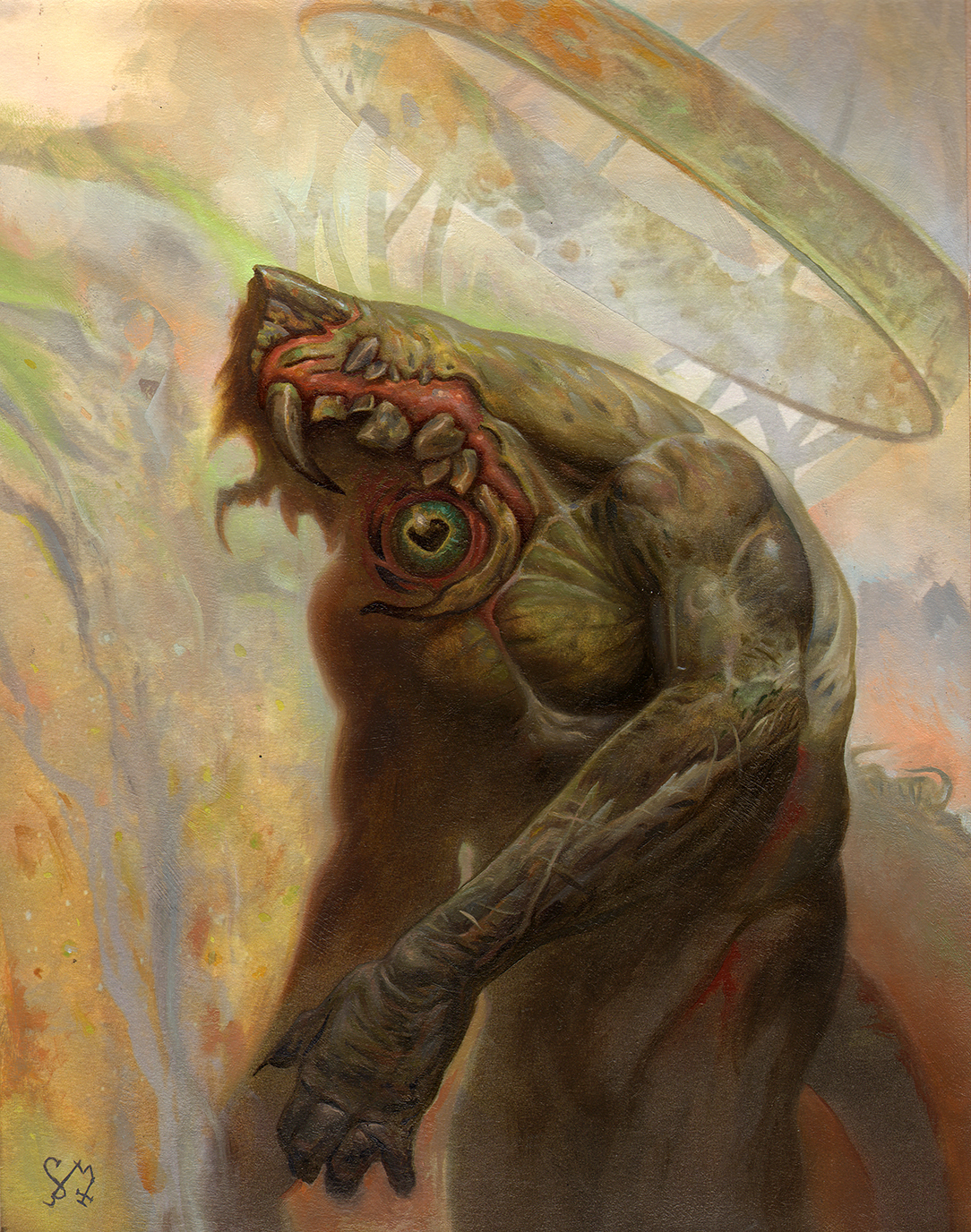 |
- |
| Bileth | Moloch | Tribune | - | - |
| Bitru | Dispater | 70 companies of erinyes | - | - |
| Buer | Asmodeus | 15 companies of pit fiends | 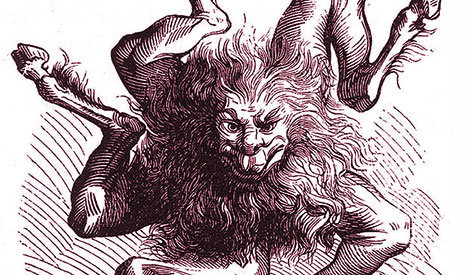 |
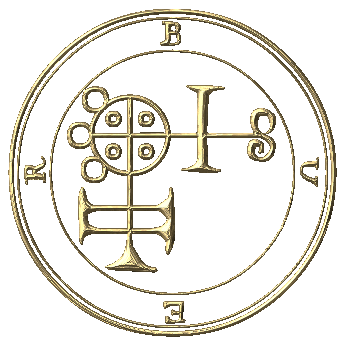 |
| Bune | Asmodeus | 30 companies of malebranche | 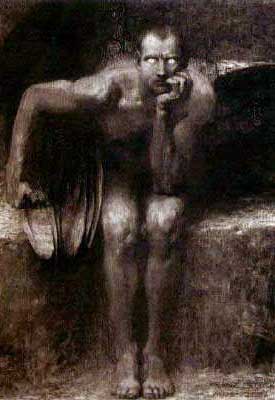 |
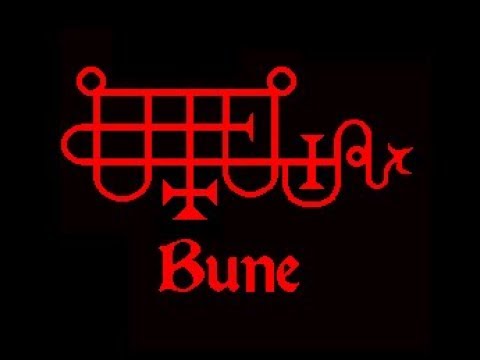 |
| Caarcrinolaas | Mammon | 36 companies of barbed devils | 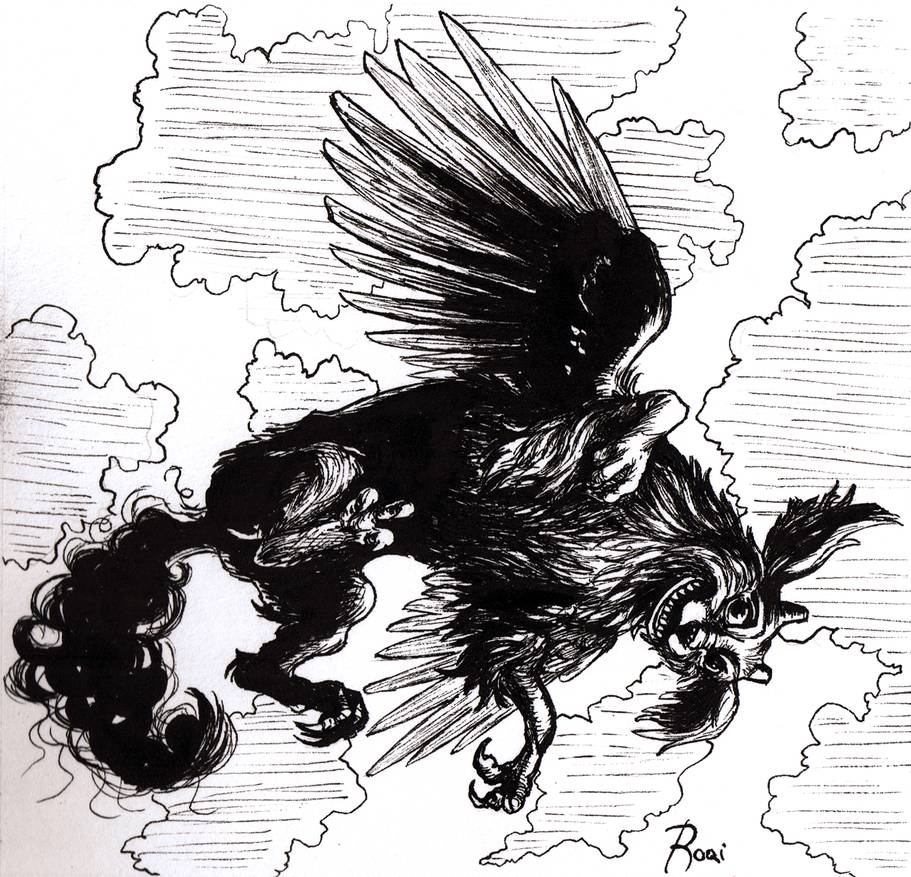 |
- |
| Chamo | Belial | Legate | - | - |
| Cozbi (F) | Geryon | Consort | - | - |
| Fecor* | Geryon | 8 companies of malebranche | - | - |
| Focalor | Mammon | Seneschal | 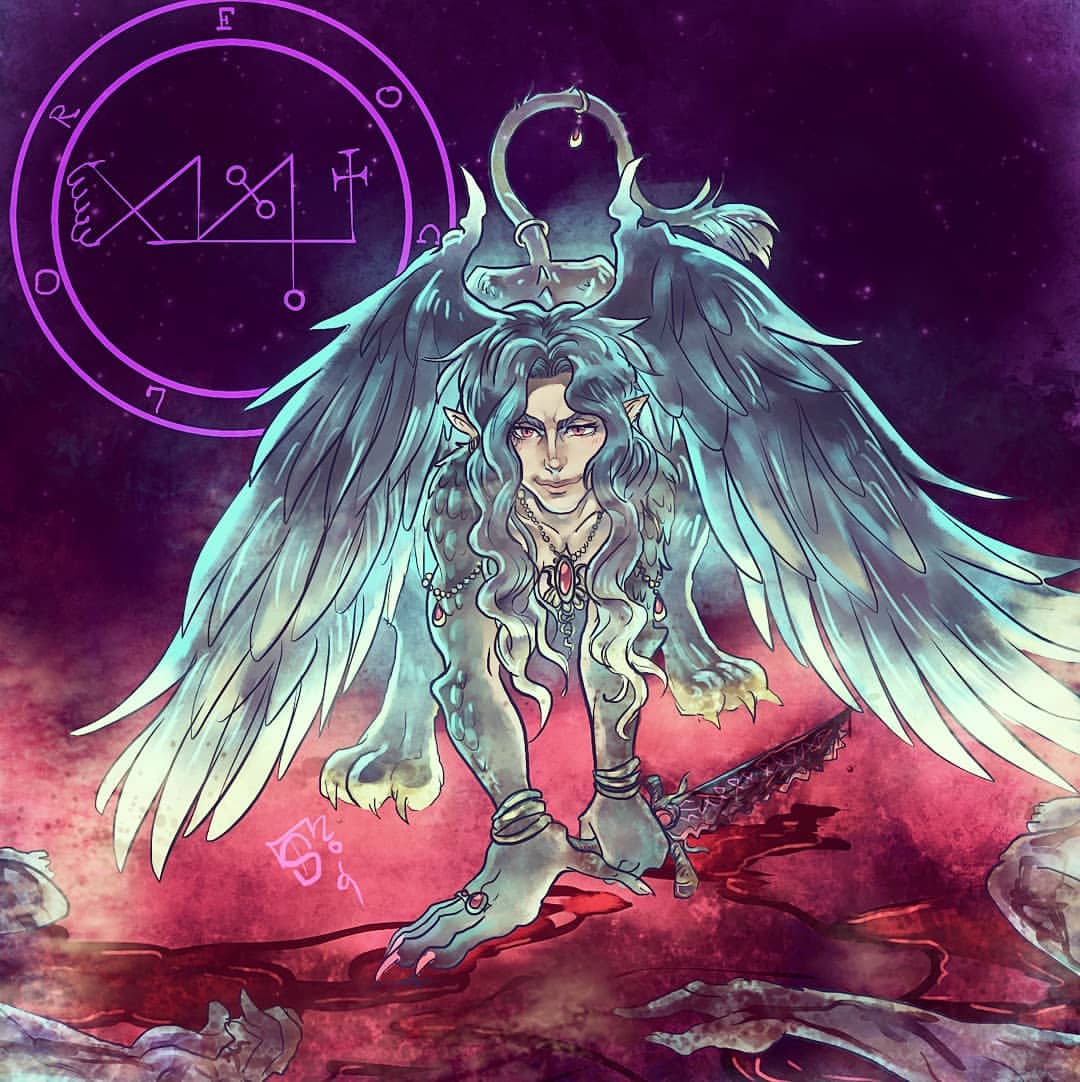 |
- |
| Furcas* | Dispater | 12 companies of bearded devils | - | - |
| Gaziel | Belial | 11 companies of bone devils | - | - |
| Glasya (F) | Mammon | Consort; daughter of Asmodeus | - | - |
| Goap* | Tiamat | 3 companies of erinyes | - | - |
| Gerson | Geryon, Baalzebul | Bailiff | - | - |
| Herobaal* | Moloch | 16 companies of bone devils | - | - |
| Herodias | Geryon | Magistrate | - | - |
| Hutjin | Mephistopheles | 2 companies of pit fiends | - | - |
| Lilis (F) | Dispater | Consort | - | - |
| Lilith (F) | Moloch | Consort | - | - |
| Machalas | Geryon | 11 companies of barbed devils | - | - |
| Malphas | Tiamat | 40 companies of abishai | - | - |
| Martinet | Asmodeus | Constable | - | - |
| Melchon | Mammon | 18 companies of erinyes | - | - |
| Merodach | Dispater | 21 companies of barbed devils | - | - |
| Moloch | Baalzebul | Viceroy | - | - |
| Morax | Asmodeus | 9 companies of pit fiends | - | - |
| Naome (F) | Belial | Consort | ||
| Neabaz | Baalzebul | Herald | ||
| Nexroth* | Mephistopheles | 16 companies of malebranche | ||
| Phongor | Asmodeus | Inquisitor | ||
| Rimmon | Asmodeus | 5 companies of ice devils | ||
| Tartach | Moloch | Legate | ||
| Titivilus | Dispater | Nuncio | ||
| Zaebos* | Belial | Lieutenant | ||
| Zagum | Asmodeus | 30 companies of barbed devils | ||
| Zapan* | Belial | 4 companies of malebranche | ||
| Zepar | Baalzebul | 28 companies of malebranche | ||
| Zimimar* | Mammon | 6 companies of bone devils |
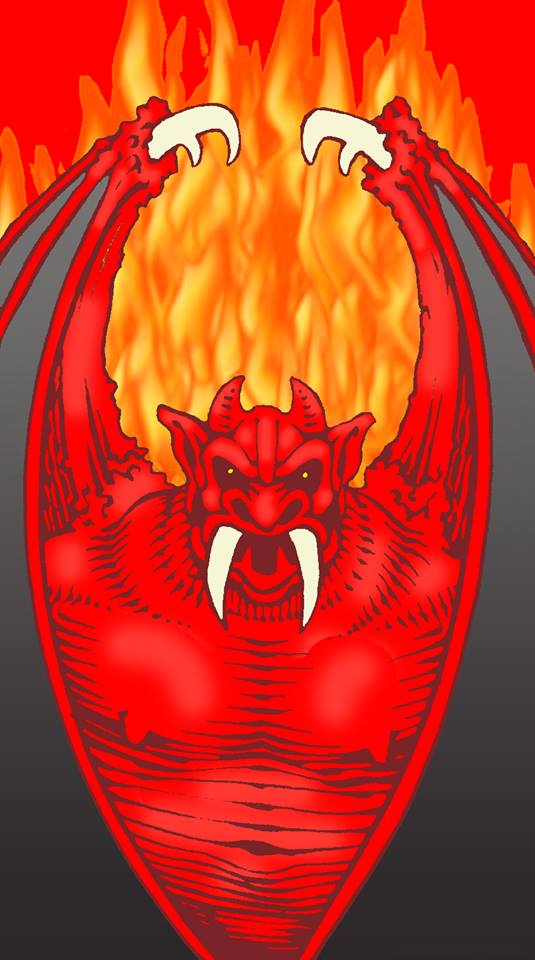
ADRAMALECH
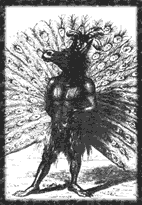
<make extra effort on the colors with
this one -- peacock feathers>
<perhaps, he has the ability to use
color,
at will, as a spell-like ability>
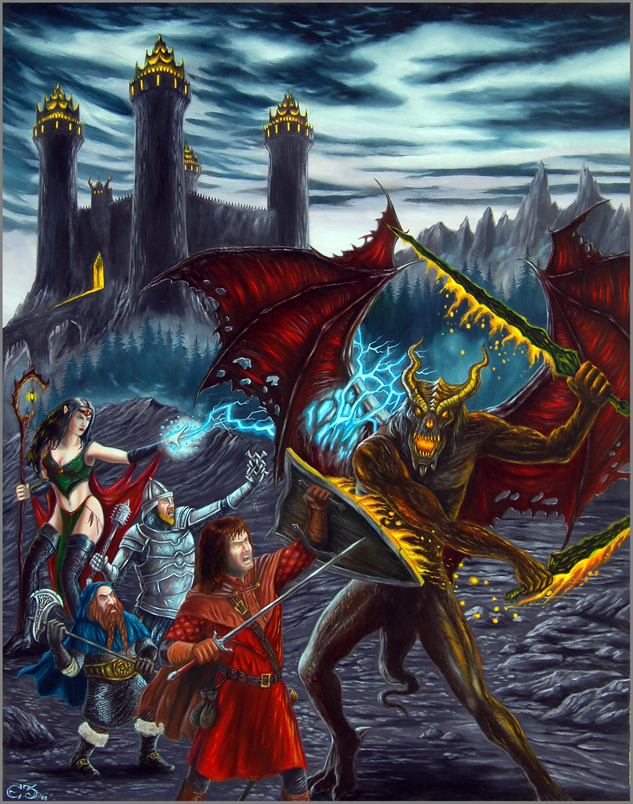
Adramalech's Keep, by Eugene Jaworski
AMDUSCIAS
serves [Tiamat], commands 29 companies of Abishai
AGARES
[Stygia], [Geryon], 31 companies of bone
devils
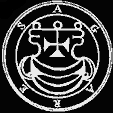
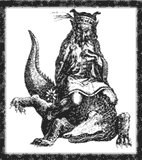
D75.32
ALOCER
[Dis], [Dispater], 36 companies of [erinyes]
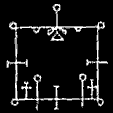
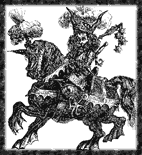
D75.24
<alt: Allocer>
chrisspiller wrote:
...
LOL Oh, I agree with you
here.
I have never had a psionically
endowed PC in my campaign,
but I am looking forward
to having some of the PCs face a few psionically endowed devils who are
in the employ of Dispater in the not too distant
future.
Making full use of their
psionic disciplines should be fun ... for me![]()
Pax,
Chris

Indeed,
That will teach them to
have such PCs.
Cheers,
Gary
AMDUSCIAS
[Avernus], [Tiamat], 29 companies of [abishai]
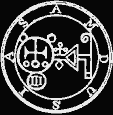
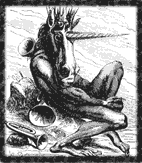
<alt: amducias>
D75.19
ARIOCH
[Dis], [Dispater], Avenger
D75.22
chrisspiller wrote:
...
LOL Oh, I agree with you
here.
I have never had a psionically
endowed PC in my campaign,
but I am looking forward
to having some of the PCs face a few psionically endowed devils who are
in the employ of Dispater in the not too distant
future.
Making full use of their
psionic disciplines should be fun ... for me![]()
Pax,
Chris

Indeed,
That will teach them to
have such PCs.
Cheers,
Gary
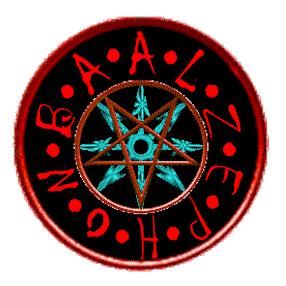
BAALZEPHON*
Prime Minister
Dis
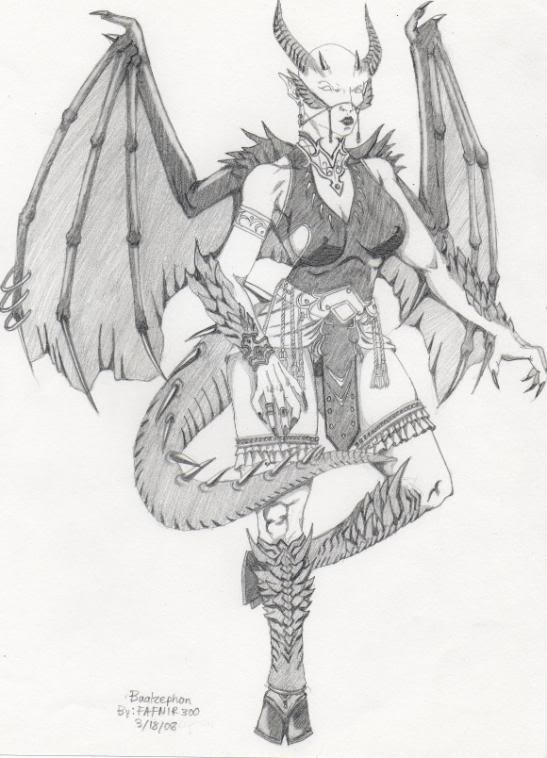
chrisspiller wrote:
...
LOL Oh, I agree with you
here.
I have never had a psionically
endowed PC in my campaign,
but I am looking forward
to having some of the PCs face a few psionically endowed devils who are
in the employ of Dispater in the not too distant
future.
Making full use of their
psionic disciplines should be fun ... for me![]()
Pax,
Chris

Indeed,
That will teach them to
have such PCs.
Cheers,
Gary
BAEL
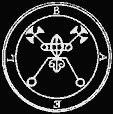
BALAN
[Phlegethos], [Belial], 40 companies ofbearded
devils
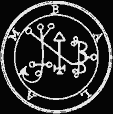
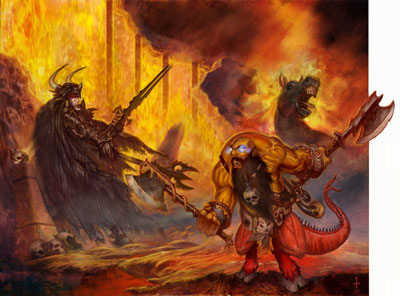
Bathym (sword) & Balan (axe)
D75.27
BARBATOS
[Baalzebul, Marshal]
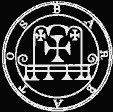
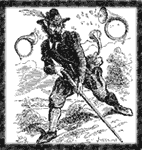
"predicts the future" - choose spell-like abilities from the Oracle
BATHYM
[Phlegethos], [Belial], 30 companies of
barbed
devils

Bathym (sword) & Balan (axe)
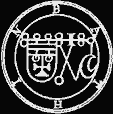
D75.30
BEL*
Dispater
3 companies of malebranche
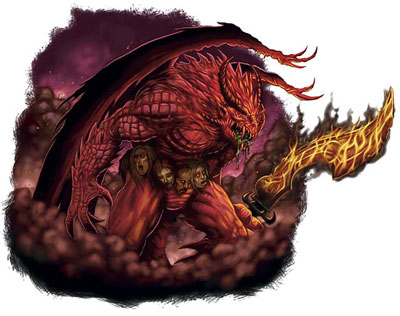
Bel
chrisspiller wrote:
...
LOL Oh, I agree with you
here.
I have never had a psionically
endowed PC in my campaign,
but I am looking forward
to having some of the PCs face a few psionically endowed devils who are
in the employ of Dispater in the not too distant
future.
Making full use of their
psionic disciplines should be fun ... for me![]()
Pax,
Chris

Indeed,
That will teach them to
have such PCs.
Cheers,
Gary
BIFFANT
[Dis], [Dispater], Provost
D75.22
chrisspiller wrote:
...
LOL Oh, I agree with you
here.
I have never had a psionically
endowed PC in my campaign,
but I am looking forward
to having some of the PCs face a few psionically endowed devils who are
in the employ of Dispater in the not too distant
future.
Making full use of their
psionic disciplines should be fun ... for me![]()
Pax,
Chris

Indeed,
That will teach them to
have such PCs.
Cheers,
Gary
BIFRONS
[Mephistopheles], 26 companies of ice
devils
"He has got thematics and astrology, but virtues of stones and magical herbs too." = see the Astrologer class for some of his spell-like abilities
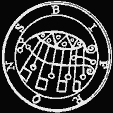
BITRU
Dispater
70 companies of erinyes
chrisspiller wrote:
...
LOL Oh, I agree with you
here.
I have never had a psionically
endowed PC in my campaign,
but I am looking forward
to having some of the PCs face a few psionically endowed devils who are
in the employ of Dispater in the not too distant
future.
Making full use of their
psionic disciplines should be fun ... for me![]()
Pax,
Chris

Indeed,
That will teach them to
have such PCs.
Cheers,
Gary
BUER
[Asmodeus], 15 companies of pit
fiends
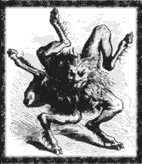
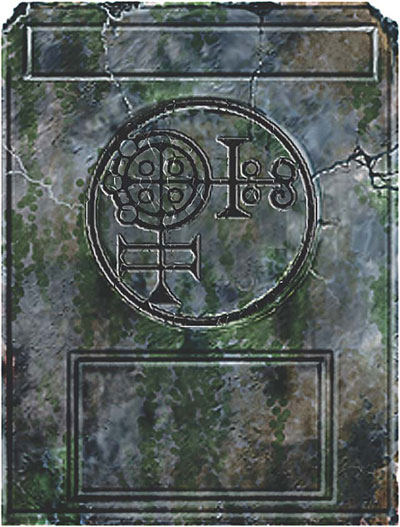
Buer, Seal of
BUNE
[Asmodeus], 30 companies of malebranche
"He gives wisdom, richness and wealth" - TREASURE !!, ensure that he has a Pearl of Wisdom
CAARCRINOLAAS
[Minauros], [Mammon], 36 companies of
barbed
devils
D75.25
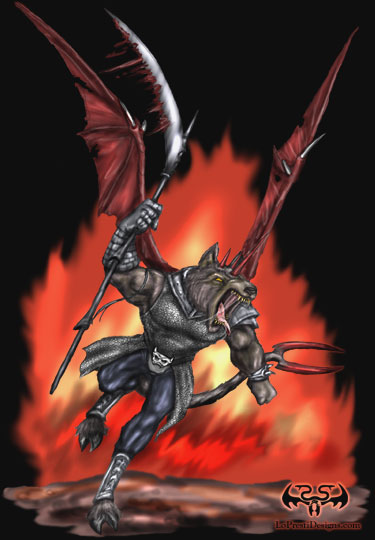
CHAMO
[Phlegethos], [Belial], Legate
D75.27
COZBI
[Stygia], [Geryon], Consort
D75.31
FOCALOR
[Minauros], [Mammon], Seneschal
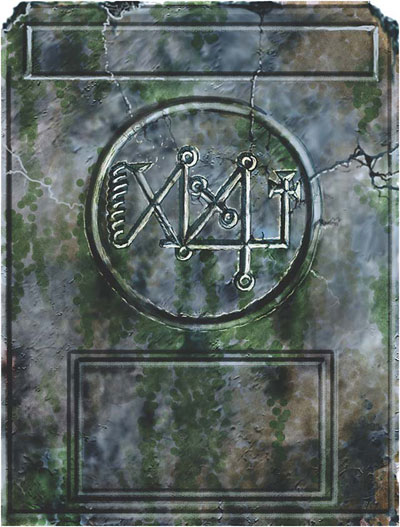
Focalor, Seal of
D75.25
FURCAS
[Dispater], 12 companies of bearded
devils
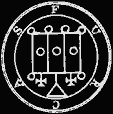
chrisspiller wrote:
...
LOL Oh, I agree with you
here.
I have never had a psionically
endowed PC in my campaign,
but I am looking forward
to having some of the PCs face a few psionically endowed devils who are
in the employ of Dispater in the not too distant
future.
Making full use of their
psionic disciplines should be fun ... for me![]()
Pax,
Chris

Indeed,
That will teach them to
have such PCs.
Cheers,
Gary
GAZIEL
[Phlegethos], [Belial], 11 companies of
bone
devils
D75.30
GOAP
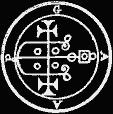
GORSON
[Stygia], [Geryon], [Baalzebul], Bailiff
D75.32
HERODIAS
[Stygia], [Geryon], Magistrate
D75.32
LILIS
[Dis], [Dispater], Consort (F)
D75.21
chrisspiller wrote:
...
LOL Oh, I agree with you
here.
I have never had a psionically
endowed PC in my campaign,
but I am looking forward
to having some of the PCs face a few psionically endowed devils who are
in the employ of Dispater in the not too distant
future.
Making full use of their
psionic disciplines should be fun ... for me![]()
Pax,
Chris

Indeed,
That will teach them to
have such PCs.
Cheers,
Gary
LILITH (Consort of Moloch)
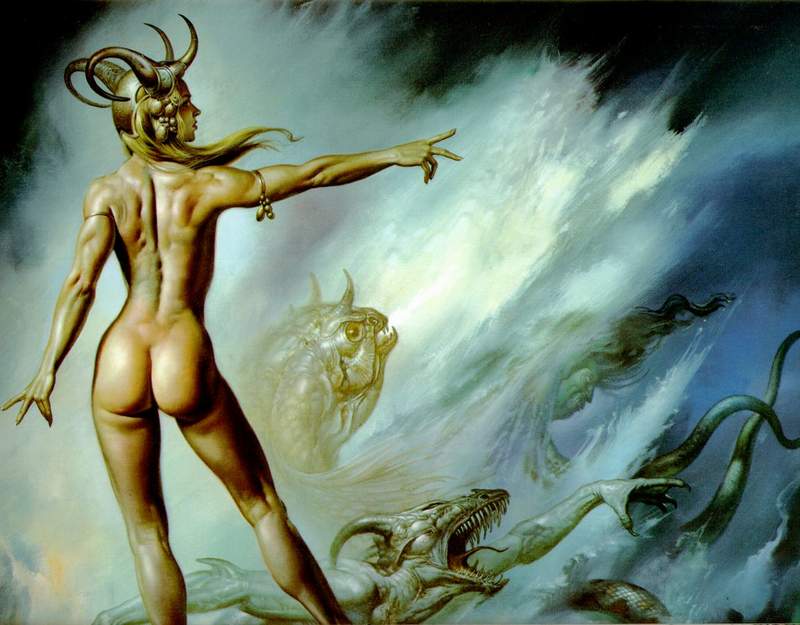
Lilith <use Hebrew fonts>
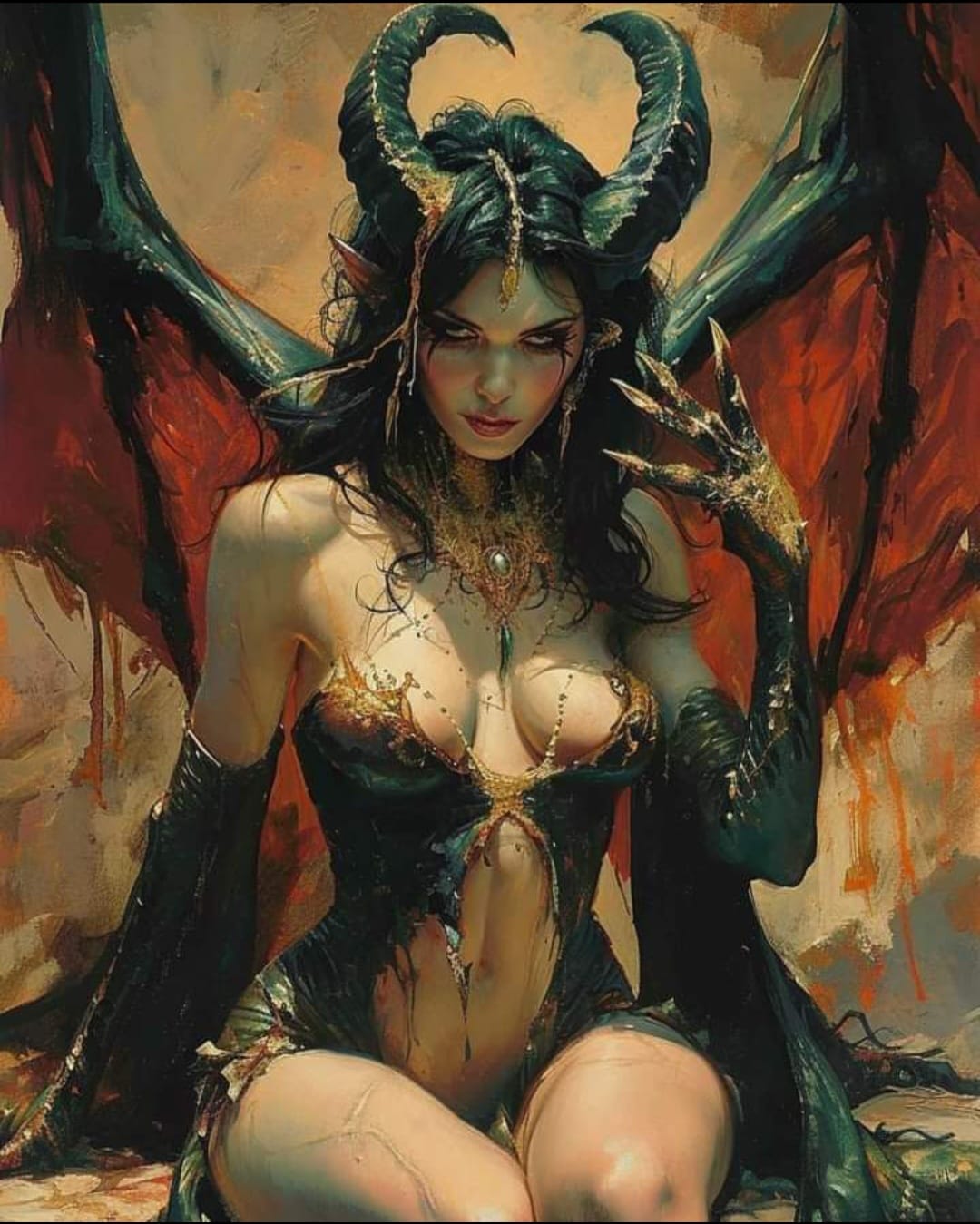
Lilith <use Hebrew fonts>
FREQUENCY: x
NO. APPEARING: x
ARMOR CLASS: x
MOVE: x
HIT DICE: x
% IN LAIR: x
TREASURE TYPE: x
NO. OF ATTACKS: x
DAMAGE/ATTACK: x
SPECIAL ATTACKS: x
SPECIAL DEFENSES: x
MAGIC RESISTANCE: x
INTELLIGENCE: x
ALIGNMENT: x
SIZE: x
PSIONIC ABILITY: x
Attack/Defense Modes:
x
LEVEL/X.P. VALUE: x
MACHALAS
[Stygia], [Geryon], 11 companies of barbed
devils
D75.33
MALPHAS
[Avernus], [Tiamat], 40 companies of [abishai]
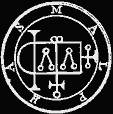
"He has got power of cures over all disease, he gives help to thieves and he also reveals the future." = specabs from the Oracle class
<alt: Malaphas>
D75.19
MELCHON
[Minauros], [Mammon], 18 companies of
erinyes
D75.26
MERODACH
[Dis], [Dispater], 21 companies of barbed
devils
D75.24
chrisspiller wrote:
...
LOL Oh, I agree with you
here.
I have never had a psionically
endowed PC in my campaign,
but I am looking forward
to having some of the PCs face a few psionically endowed devils who are
in the employ of Dispater in the not too distant
future.
Making full use of their
psionic disciplines should be fun ... for me![]()
Pax,
Chris

Indeed,
That will teach them to
have such PCs.
Cheers,
Gary
MORAX
[Asmodeus], 9 companies of pit
fiends

"He is count but duke too, he knows astrology and vitues of herbs and stones." = see the Astrologer class for some of his spell-like abilities
NAOME
[Phlegethos], [Belial], Consort (F)
<note: see Belial -- that might be her>
D75.27
TITIVILUS
Dispater
Nuncio
chrisspiller wrote:
...
LOL Oh, I agree with you
here.
I have never had a psionically
endowed PC in my campaign,
but I am looking forward
to having some of the PCs face a few psionically endowed devils who are
in the employ of Dispater in the not too distant
future.
Making full use of their
psionic disciplines should be fun ... for me![]()
Pax,
Chris

Indeed,
That will teach them to
have such PCs.
Cheers,
Gary
ZEPAR
[Baalzebul], 28 companies of malebranche
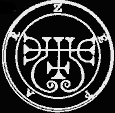
"Also called VEPAR or SEPAR, he can create love between male and female, he can change the aspect of men; he also reveals the future." = Oracle & Witch (Love spells) spell-like abilities
<art: Satanic shemale, full frontage>
<a devil won't break the law, a demon will>
|
|
|
|
|
|
|
|
|
|
Frequency of Devils on Avernus (The 1st Hell)
| Ruler = Tiamat | Abishai = C | Arch = VVR | Barbed = R | Bearded = 0 | Bone = 0 | Erinyes = C | Horned = 0 |
| Ice = 0 | Nupperibo = U | Fiend = 0 | Spined = C | Styx = 0 | Achaierai = R | Barghest = VR | Daemon = VR |
| Hell Cat = 0 | Hell Hound = VR | Hordling = VR | Imp = VR | Lemure = R | Mephit = C | Nightmare = VR | Rakshasa = VR |
| Stench Kow = C | - | - | - | - | - | - | - |
Frequency of Devils on Dis (The 2nd Hell)
| Ruler = Dispater | Abishai = C | Arch = VVR | Barbed = U | Bearded = R | Bone = 0 | Erinyes = C | Horned = VR |
| Ice = 0 | Nupperibo = C | Fiend = VR | Spined = C | Styx = 0 | Achaierai = C | Barghest = VR | Daemon = VR |
| Hell Cat = U | Hell Hound = U | Hoardling = U | Imp = C | Lemure = R | Mephit = C | Nightmare = R | Rakshasa = C |
| Stench Kow = C | - | - | - | - | - | - | - |
Frequency of Devils on Minauros (The 3rd Hell)
| Ruler = Mammon | Abishai = U | Arch = VVR | Barbed = C | Bearded = C | Bone = U | Erinyes = R | Horned = VR |
| Ice = 0 | Nupperibo = C | Fiend = VR | Spined = C | Styx = VR | Achaierai = C | Barghest = VR | Daemon = VR |
| Hell Cat = U | Hell Hound = U | Hoardling = R | Imp = C | Lemure = U | Mephit = C | Nightmare = R | Rakshasa = C |
| Stench Kow = C | - | - | - | - | - | - | - |
Frequency of Devils on Phlegethos (The 4th Hell)
| Ruler = Belial | Abishai = R | Arch = VVR | Barbed = C | Bearded = C | Bone = C | Erinyes = VR | Horned = R |
| Ice = 0 | Nupperibo = C | Fiend = VR | Spined = C | Styx = R | Achaierai = U | Barghest = VR | Daemon = VR |
| Hell Cat = R | Hell Hound = C | Hoardling = R | Imp = U | Lemure = U | Mephit = C | Nightmare = R | Rakshasa = U |
| Stench Kow = U | - | - | - | - | - | - | - |
Frequency of Devils on Stygia (The 5th Hell)
| Ruler = Geryon | Abishai = VR | Arch = VVR | Barbed = R | Bearded = U | Bone = U | Erinyes = 0 | Horned = U |
| Ice = 0 | Nupperibo = C | Fiend = VR | Spined = C | Styx = C | Achaierai = U | Barghest = VR | Daemon = VR |
| Hell Cat = R | Hell Hound = C | Hoardling = R | Imp = U | Lemure = C | Mephit = C | Nightmare = R | Rakshasa = U |
| Stench Kow = U | - | - | - | - | - | - | - |
Frequency of Devils on Malbolge (The 6th Hell)
| Ruler = Moloch | Abishai = 0 | Arch = VVR | Barbed = 0 | Bearded = VR | Bone = R | Erinyes = 0 | Horned = C |
| Ice = 0 | Nupperibo = C | Fiend = VR | Spined = U | Styx = U | Achaierai = U | Barghest = VR | Daemon = VR |
| Hell Cat = U | Hell Hound = R | Hoardling = VR | Imp = U | Lemure = C | Mephit = U | Nightmare = R | Rakshasa = R |
| Stench Kow = U | - | - | - | - | - | - | - |
<* what was that asterisk supposed to be for?>
Frequency of Devils on Maladomini (The 7th Hell)
| Ruler = Baalzebul | Abishai = 0 | Arch = VVR | Barbed = 0 | Bearded = 0 | Bone = VR | Erinyes = 0 | Horned = C |
| Ice = VR | Nupperibo = C | Fiend = VR | Spined = U | Styx = 0 | Achaierai = R | Barghest = VR | Daemon = VR |
| Hell Cat = R | Hell Hound = VR | Hoardling = 0 | Imp = R | Lemure = C | Mephit = U | Nightmare = R | Rakshasa = 0 |
| Stench Kow = 0 | - | - | - | - | - | - | - |
Frequency of Devils on Caina (The 8th Hell)
| Ruler = Mephistopheles | Abishai = 0 | Arch = VVR | Barbed = 0 | Bearded = 0 | Bone = 0 | Erinyes = 0 | Horned = VR |
| Ice = C | Nupperibo = C | Fiend = R | Spined = U | Styx = 0 | Achaierai = VR | Barghest = R | Daemon = VR |
| Hell Cat = R | Hell Hound = 0 | Hoardling = 0 | Imp = VR | Lemure = C | Mephit = U | Nightmare = VR | Rakshasa = VR |
| Stench Kow = U | - | - | - | - | - | - | - |
Frequency of Devils on Nessus (The 9th Hell)
| Ruler = Asmodeus | Abishai = 0 | Arch = VVR | Barbed = 0 | Bearded = 0 | Bone = 0 | Erinyes = 0 | Horned = VR |
| Ice = R | Nupperibo = C | Fiend = C | Spined = U | Styx = 0 | Achaierai = VR | Barghest = R | Daemon = VR |
| Hell Cat = 0 | Hell Hound = U | Hoardling = 0 | Imp = R | Lemure = C | Mephit = U | Nightmare = VR | Rakshasa = VR |
| Stench Kow = U | - | - | - | - | - | - | - |
<hoardling, corrected to hordling>
<
Use against Lesser Devils
Use against all Devils
Make d100 Devil Table
See the d100 Demon Table for format
>
Quote:
Originally Posted by Gray
Mouser
Colonel,
I was just reading the Devils entry in the MM II and there is a section entitled "The Hierarchy of the Planes of Hell," in which you list "the dukes of hell as well as some of their foremost henchmen." The entry consists of three lists; the name of the dukes, the name of the devil they are in service to, and thier command or position. A few of the entries are marked with a (F) which obviously indicates that they are females (Baalphegor, Lilis, Lilith, etc.) but there are also some dukes that have an asterisk besides their name (*). I have been unable to locate any text in the MM II that explains the meaning of this mark. Names marked with an asterisk include: Alastor, Baalberith, Baalzephon, Bel, Bethage, Fecor, Furcas, Goap, Herobaal, Nexroth, Zaebos, Zapan, and Zimimar.
Any chance you could shed some light on the meaning of the asterisked entries? Does it have anything to do with the statement that "In general the dukes are equal to a weaker arch devil, although some are but little stronger than a pit fiend or are, in fact, actual pit fiends"? In other words, are those marked with an asterisk the weaker pit fiend variety dukes?
Anyway, thanks in advance!
Gray Mouser

It has been a long, long
time since I write that, but what Boz mentioned rings a bell.
Of course the assignment of status was a generally arbitrary one on my part, based on some study of popular demonoliogies, so the DM should feel completely free to alter such designation as is seen fit.
Cheers,
Gary
![]()
IIRC, didn't the * denote
pit fiends with higher than normal status?
Quote:
Originally Posted by Tarek
That's because the list
of devils in the Monster Manual II originally appeared in a series of articles
in Dragon, wherein the designation of the asterisk is explained.
You may be remembering the
articles in Dragon too.

Now spill the beans so that
no one has to search the old zine copies to find out.
Does the asterisk mean the
devil was a jumper-up Pit Field?
<laughing>
Gary
Quote:
Originally Posted by khyron1144
Hi Gary,
I apologize, if this has
been asked before, but were any of the unique monsters in the orginal Monster
Manual 2 intended to be lesser deities as the Deities and Demigods cyclopedia
says the Archdevils and Demon Princes and Princes of Elemental Evil are?
In my campaign, I've always gone with the assumption that any unique monster from one of the 1e hardbacks that's tagged with the label Archdevil or Demon Prince is a lesser deity, as are the Princes of Elemental Evil, The Cat Lord, Anthraxus, and Primus.
Thanks.

Based on our world's actual
mythology, such evil entities can be a lot more than lesser deities. Using
the criteria mentioned, some are greater ones on a par with the benign
deities.
Cheers,
Gary